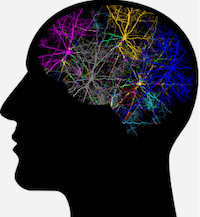ESETT Trial Finds 3 Anti-Seizure Treatments Equally Safe, Effective
Results of the ESETT trial are revealing there is little difference in the effectiveness or safety profiles of three anti-seizure treatments for patients with a severe form epilepsy.

New data from the Established Status Epilepticus Treatment Trial (ESETT) is revealing there is little difference in the effectiveness or safety profiles of three anti-seizure treatments for patients with a severe form epilepsy.
The National Institute of Health- and US FDA-funded ESETT trial studied the use of levetiracetam, fosphenytoin, and valproate for treating seizures in children and adults with refractory status epilepticus and demonstrated all 3 drugs were equally safe and effective at stopping seizures and improving a patient's level of responsiveness within 60 minutes of treatment.
"Our study suggests that clinical outcomes are driven by factors other than drugs. Differences in how doctors decide to treat status epilepticus, such as when they give more drugs or when to anesthetize patients and put them on a mechanical ventilator, may be more important than the specific treatments used to control seizures in patients," said lead investigator Robert Silbergleit, MD, professor at the University of Michigan, in a press release from the National Institute of Health.
To provide further guidance to clinicians when choosing drugs for patients who are refractory to treatment with benzodiazepines, the investigator-intimated, multicenter, randomized, blinded, comparative-effectiveness ESETT trial compared the 3 aforementioned treatments in 384 patients from 57 in the United States. Of the 384 included, 39% were children, 48% were between the ages of 18 and 65, and 13% were over the age of 65.
In all, 145 patients randomized to receive levetiracetam, 118 received fosphenytoin, and 121 received valproate. Investigators pointed out 16 additional instances of randomization were caused by reenrollment of patients with a second episode.
The primary outcome of ESETT was the absence of clinically evident seizures and improvement in the level of conscious 60 minutes after the start of drug infusion with the absence of anticonvulsant medication. Safety outcomes included life-threatening hypotension, or cardiac arrhythmia, endotracheal intubation, seizure recurrence, and death.
The trial was discontinued because an interim analysis revealed it met a prespecified stopping rule for the futility of finding one drug to be superior or inferior.
Results of analyses revealed 47% of patients receiving levetiracetam (n=68, 95% CI, 39-55) met the primary endpoint of the study—compared to 46% of patients receiving valproate (n=56, 95% CI, 38-55) and 45% of patients receiving fosphenytoin (n=53, 95% CI, 36-54). Based on the results, the posterior probability that each drug was most effective was 0.41, 0.35, and 0.24, respectively.
When examining safety outcomes of the study, investigators noted an increase in instances of hypotension among patients receiving levetiracetam but the increase was not statistically significant. Rates of life-threatening hypotension were 0.7% in the levetiracetam group, 3.2% in the fosphenytoin group, and 1.6% in the valproate group.
"Doctors can be confident that the particular treatment they choose for their patients with status epilepticus is safe and effective and may help them avoid the need to intubate the patient as well as stays in the intensive care unit," said study author Robin Conwit, MD, program director with the National Institute of Neurological Disorders and Stroke. "This was a truly collaborative, multidisciplinary study that involved pediatricians, emergency medicine doctors, neurologists, pharmacologists, and biostatisticians all contributing their expertise."
This study, titled “Randomized Trial of Three Anticonvulsant Medications for Status Epilepticus,” was published online in the New England Journal of Medicine.